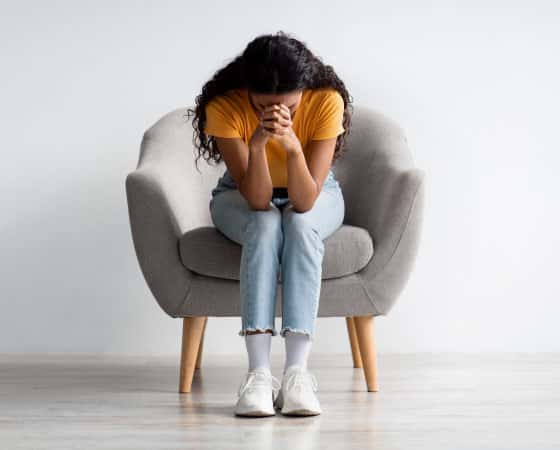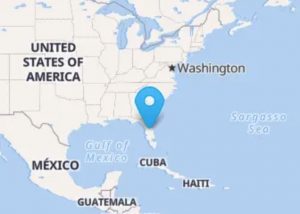To Call
Seeking Out A Residential School For Your Troubled Girl? Our Central Florida Residential Treatment Center For Girls Has Much To Offer.
If your daughter is struggling, you will want to find the best
treatment to help her. Providence Pass near Orlando helps
girls from across Florida.
- Beautiful Home & 20-Acre Ranch
- Individual, Family & Group Therapy
- Fun Recreational Activities
- Academics & Skill Building
- Equine Assisted Therapy

Understanding Panic Attacks
Panic attacks are sudden and intense sensations of fear or anxiety that can occur out of nowhere, often followed by physical symptoms like chest pain, just like a heart attack, which can be a frightening experience for anyone, especially teenagers. For teenagers, who are already living in a complex world of social and academic pressures, panic attacks can be pretty scary. Unlike general anxiety, which can remain quietly in the background over a long period, panic attacks are violent bursts that peak in intensity within minutes.
In the case of teenagers, it is important to distinguish panic attacks from the broader spectrum of anxiety disorders. Teens might experience a wide range of stressful events that contribute to everyday anxiety, but panic attacks are characterized by their sudden occurrence and the intense physical and emotional symptoms that come along with them.
Identifying Symptoms
Recognizing the symptoms of panic attacks in teens is the first step toward understanding and managing them. Here is a list of common symptoms:
- Racing heart
- Shortness of breath
- Dizziness
- Overwhelming fear
During a panic attack, adolescents with panic disorder might feel their heart racing or pounding (heart palpitations) as if it is going to burst out of their chest. They might struggle to take deep breaths, feeling like they can not get enough air (shortness of breath), which can lead to dizziness or a sensation of being lightheaded. Perhaps the most defining symptom is an intense, overwhelming fear that something terrible is about to happen, even when there is no real danger present. These symptoms are not only frightening but can also feel isolating, as teens may struggle to explain what they are experiencing to others.
Common Triggers in Teens
- Academic stress and deadlines
- Pressure to succeed or excel in off-campus activities
- Social dynamics, including peer pressure and bullying
- Personal or family conflicts
- Concerns about identity, self-esteem, or body image
- Major life changes, such as moving or changing schools
- Traumatic events or experiences
- Fear of failure or disappointment
- Relationship issues with friends or romantic partners
- Health-related anxieties or fears
How Long Do Panic Attacks Last?
Panic disorders in teenagers, like in adults, are typically brief, lasting from a few minutes to half an hour. However, the peak of the attack, where the symptoms are most intense, usually takes place within the first 10 minutes. After this peak, the symptoms gradually subside, but the emotional and physical exhaustion can be felt for much longer. It is crucial for teens and those around them to understand that, despite the intensity of the symptoms, panic attacks are temporary and will eventually pass.
Accepting 3 Applications Immediately
Immediate Steps During a Panic Attack
When an unexpected panic attack strikes, it can feel like you are losing control. However, there are immediate steps that teens or their caregivers can take to help manage the symptoms. Here is a list of strategies:
- Breathing Exercises: Slow, deep breaths can help slow down the rapid breathing that often results from a panic attack. Focus on breathing slowly through the nose, holding for a count of four, and then exhaling slowly through the mouth.
- Finding a Quiet Place: If possible, move to a quiet and safe space. Reducing sensory input can help lessen the intensity of a panic attack.
Using Mindfulness Techniques: Grounding techniques, such as the 5-4-3-2-1 method, can help distract the mind from panic by focusing on the present. This involves identifying five things you can see, four things you can touch, three things you can hear, two things you can smell, and one thing you can taste.
Long-Term Management Strategies
Managing panic disorders, especially in teens, requires a comprehensive approach that includes lifestyle changes and, in some cases, therapeutic interventions. Here are some strategies that have proven effective:
- Regular Exercise:Physical activity can help reduce stress levels and improve overall mental health. Encouraging teens to find a physical activity they enjoy can be a powerful tool in managing severe anxiety.
- Adequate Sleep: Sleep is crucial for emotional well-being and stress management. Teens should aim for healthy sleep schedules and make sure they get enough rest to help reduce the likelihood of panic attacks.
- Therapy Options: Cognitive Behavioral Therapy (CBT) is highly effective in treating panic attacks and anxiety disorders. Cognitive therapy works by helping individuals identify and challenge negative thought patterns and behaviors that contribute to their anxiety. Other therapeutic approaches, such as mindfulness-based therapy, can also be beneficial.
Supporting a Teen Experiencing Panic Attacks
Panic attack is a common disorder in children. Supporting a teenager who is experiencing panic attacks starts with compassion and empathy. Recognize that panic attacks are not simply a matter of feeling nervous or stressed. They are intense, often terrifying experiences. Listen to the kid’s concerns without judgment and empathize with their feelings. Showing that you believe them and understand the depth of their experiences can make a significant difference in their feeling of fear and isolation.
On a practical level, facilitating access to professional help is a critical component in treatment of panic disorder of a teenager. This might include facilitating appointments with mental health professionals, helping them maintain a healthy lifestyle, and learning about panic attacks together. Encourage open communication, and let the teen know that they can talk to you about their feelings and symptoms at any time. Being a steady, reassuring presence can help a teen feel more secure and understood.
Accepting 3 Applications Immediately
Frequently Asked Questions
What is the difference between an anxiety attack and a panic attack?
Anxiety attacks are not recognized in the Diagnostic and Statistical Manual of Mental Disorders as panic attacks are, but the term is often used to describe less intense, more prolonged periods of anxiety. Panic attacks are acute, intense, and often have a sudden onset, while anxiety attacks may build up more gradually and are generally related to a specific worry or stressor.
How do you break a panic attack cycle?
Breaking a panic attack cycle involves a combination of immediate coping strategies, such as those listed above, and long-term management techniques like regular exercise, adequate sleep, and therapy. Recognizing the early signs of a panic attack and implementing coping strategies early can also help shorten or mitigate the attack.
What are 3 types of panic attacks?
The DSM-5 identifies three types of panic attacks: unexpected (occurring without an apparent cause), situationally bound (occurring in anticipation of or in response to a specific trigger), and situationally predisposed (more likely to occur in certain situations but not exclusively linked to specific triggers).
What are the symptoms of a silent panic attack?
Symptoms of a silent panic attack might include internal or less visible signs such as intense fear, discomfort, dizziness, nausea, or an increased heart rate without the more observable symptoms like shaking or fainting.
What is the 5 5 5 rule for panic attacks?
The 5 5 5 rule is a grounding technique used during a panic attack to help bring the person’s focus back to the present. It involves taking a moment to acknowledge 5 things you can see, 5 sounds you can hear, and 5 things you can physically feel, helping to reduce feelings of overwhelm by focusing on immediate sensory experiences.
Accepting 3 Applications Immediately

Who We Are
Upward Bound provides a compassionate environment that nurtures the cognitive, emotional, and social development of struggling adolescents within a therapeutically supportive and educational community. Our facility includes private therapy offices for individual or family counseling, an intimate but modern group therapy room, indoor/outdoor interaction spaces, state-of-the-art technology, and educational tools to give at-risk girls the opportunity to heal and grow from past traumas.














